Books of the month: From We Are All Birds of Uganda to Asylum Road
Chief book critic Martin Chilton reviews January’s biggest releases for our monthly column

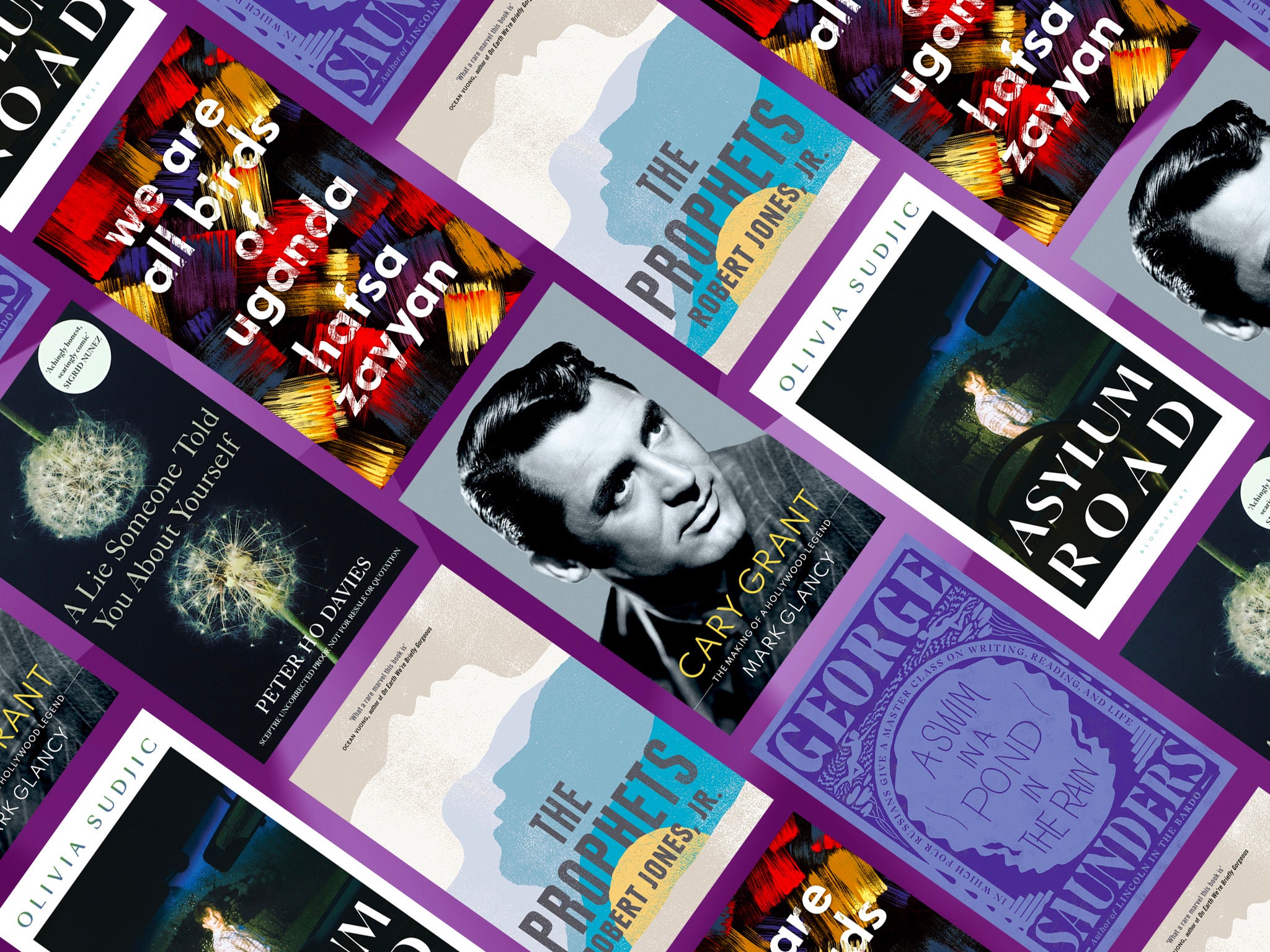
David Bowie, who died five years ago this month, remains a fascinating subject. When the musician was asked, “Who influenced you as a child?”, his answer was Donald Duck – but not because the Disney character was a particular favourite. “No, I loathed him,” said Bowie. “He made me learn how to hate.” Mark Edwards’s The Tao of Bowie: 10 Lessons from David Bowie’s Life To Help You Live Yours (Allen & Unwin) will suit those in need of Ziggy’s Stardust’s quirky wisdom.
Advice books are as plentiful as showers in January, although few “self-help” publications are as readable as Bryony Gordon’s No Such Thing As Normal (Headline), in which the writer and mental health campaigner opens up about her own problems, offering practical advice on subjects such as anxiety, medication, self-image and mindfulness. On a related theme, James Gibson’s The Octopus Man (W&N) is a compassionate, witty novel about being lost in the maze of the British mental health system.
Oscar Wilde joked that the only thing to do with good advice was pass it on, because “it is never of any use to oneself”. Getting older relatives to listen to sound guidance is sometimes hard. In The Book About Getting Older (For People Who Don’t Want To Talk About It) (Michael Joseph), Dr Lucy Pollock offers useful tips about thorny subjects such as choosing medications and identifying dementia. She cites the example of trainee geriatricians working in Tanzania, who had no formal testing methods for identifying mental decay in the elderly. Instead, they came up with the instructive question: “Is there anyone in this village who used to be someone you would go to for advice, but you wouldn’t ask their advice anymore?”
The first batch of 2021 books about the horrors of coronavirus begins with Gavin Francis’s Intensive Care: A GP, a Community & Covid-19 (Wellcome Collection) and Dr Rachel Clarke’s Breath Taking (Little, Brown). Palliative care specialist Clarke follows up her superb Dear Life with this searing insider’s account of being at the NHS front line of a life-or-death battle. The book is equal parts shocking and heartrending.
Ijeoma Oluo’s polemical, stimulating Mediocre: The Dangerous Legacy of White Male Power (Basic Books) evaluates toxic male history. In reference to 70-year-old Wild Bill Cody’s late-life regrets about the large-scale massacre of buffalo, a slaughter that gave him his stage name, Oluo remarks: “Perhaps one of the most brutal of white male privileges is the opportunity to live long enough to regret the carnage you have brought upon others.” Her book also includes a reflection on the “patronising” opinions about race that President-elect Joe Biden proffered during his Senate career.
Jeffrey Hudson, a 17th-century “court dwarf”, once killed a much larger man in a duel. He was presented to Queen Henrietta Maria in a baked cold pie. Hudson’s bizarre life is the inspiration for Frances Quinn’s engaging The Smallest Man (Simon & Schuster), in which Nat Davy narrates his own remarkable life story. Another historical novel that took my eye was Cathedral by Ben Hopkins (Europa Editions). This adventure, full of intrigue, is set around a religious monument built in the German town of Hagenburg in the 13th century.
In Islands of Abandonment: Life in the Post-Human Landscape (William Collins), Cal Flyn explores the extraordinary places – from Tanzanian mountains to the volcanic Caribbean, from the forbidden areas of France to the mining regions of Scotland – where humans no longer live, or have made uninhabitable for themselves. This lyrical book swings from environmental optimism to despair, as Flyn looks at the human propensity to trash the Earth. Nature has remarkable powers of recovery, but unless we change our ways, we may not. This is a thoughtful, fascinating read.
For real-life, gripping history, I would recommend Andrea Pitzer’s Icebound: Shipwrecked at the Edge of the World (S&S), which pieces together the epic year-long fight for survival in the Far Arctic by 16th-century explorer William Barents. Being stalked by bears was the least of the terrors. China 1949: Year of Revolution by Graham Hutchings (Bloomsbury Academic) adds to our understanding of the rise of Chairman Mao.
There are some cracking debut novels this month, including Una Mannion’s A Crooked Tree (Faber), Shiver by Allie Reynolds (Headline), Cherie Jones’s How the One-Armed Sister Sweeps Her House (Tinder Press), which explores male violence in a story set in Barbados, and Megha Majumdar’s A Burning (Scribner), set in India in the aftermath of a terrorist attack.
The most outlandish debut is Raven Leilani’s Luster (Picador), about a young black woman called Edie, stuck in a dead-end job, who finds a new way to mess up her life: becoming involved with a married middle-aged man. Edie is a memorable protagonist, who holds nothing back.
Finally, there is a real treat for fans of the classy fiction of Joyce Carol Oates, with the publication of Cardiff, by the Sea (Head of Zeus), four chilling, previously unreleased novellas.
Novels by Peter Ho Davies, Hafsa Zayyan, Olivia Sudjic and Robert Jones Jr, as well as non-fiction from George Saunders and a new biography of Cary Grant, are reviewed in full below.
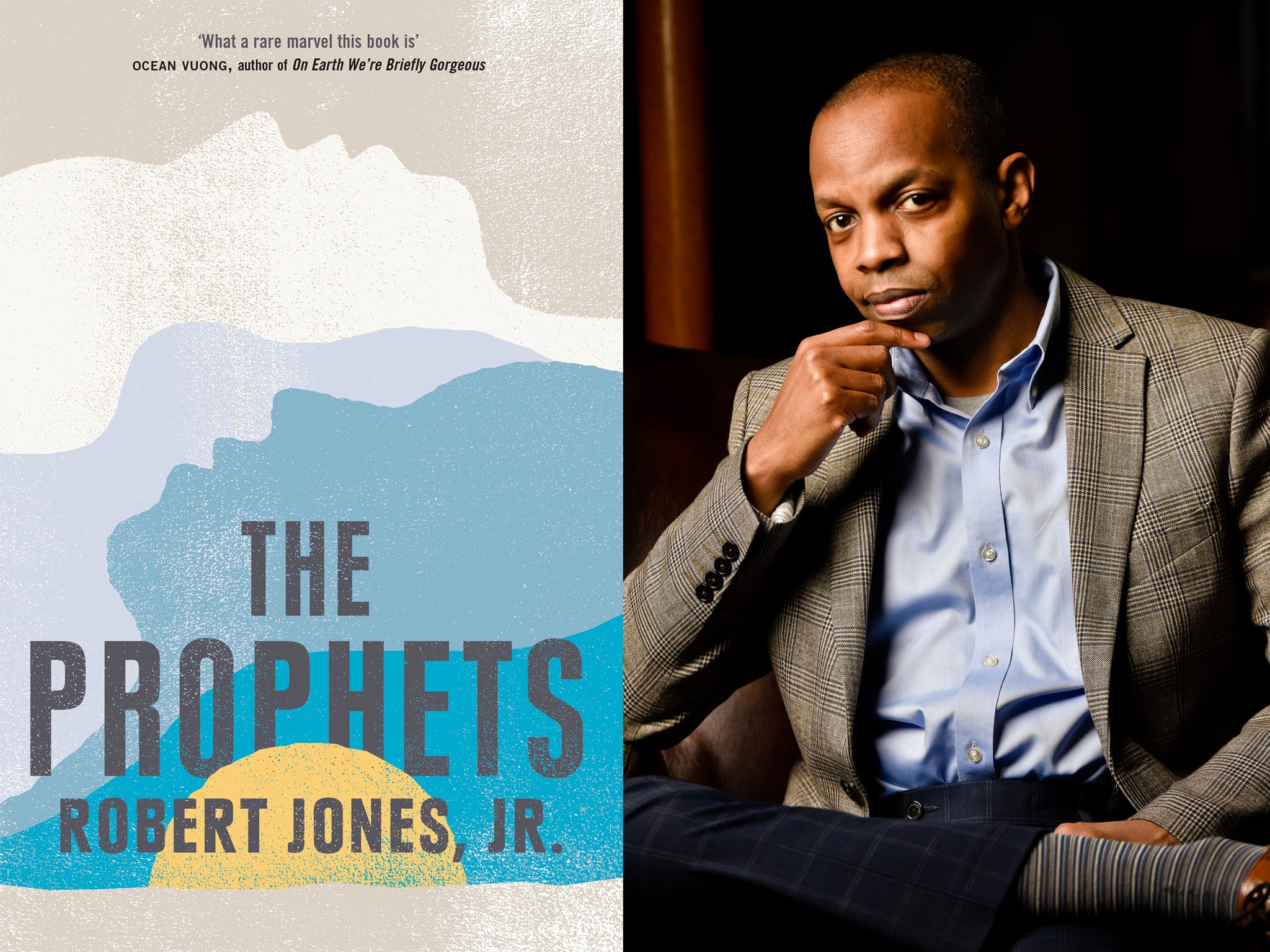
The Prophets by Robert Jones Jr ★★★★☆
It seems obvious to modern sensibilities that enslaved men and women, aboard ships and on plantations, formed erotic same-sex bonds. However, “forbidden love” was an unacknowledged part of slave history for more than a century. In his debut novel The Prophets, Robert Jones Jr – AKA the blogger Son of Baldwin – uses the love story of two enslaved teenage boys to explore the brutality and dehumanising ways of life on a Mississippi plantation known as Empty.
Orphans Isaiah and Samuel are assigned to look after horses. They begin an affair using the barn, otherwise known as “The F***ing Place”, as their supposed safe zone. At first, their relationship is written off as a “peculiar closeness”, but it soon becomes a perilous secret that others are ready to exploit, especially on a plantation where “giving Massa babies” is the priority for young men.
As well as being a poignant tale of love, repressed desire and sexual politics, The Prophets is a gut-wrenching dissection of plantation life, from the dirt and exhaustion, the cotton stuck beneath fingernails, the bizarre rituals and the forced eating of innards from troughs, right down to the horror of seeing “bodies swinging high from trees”. Life for African-Americans in Antebellum South was a living hell.
In his heartbreaking list of grievances, Samuel complains that the bosses “kidnapped babies and shattered families and then called them incapable of love. They raped and lynched and cut up people into parts, and then called the pieces savage,” before adding (as if to hammer home the modern relevance), “they stepped on people’s throats with all their might and asked why the people couldn’t breathe”.
As well as the powerful protagonists Isaiah and Samuel – and the malevolent, pious Amos, who is also enslaved – there are a host of complex female characters, including Be Auntie, Sarah, Puah and Essie. No spoilers, but things come to a head when young Massa Timothy, a man who “knew what lurked in the loins of men”, returns from the North and targets the young pair.
The Prophets is a lyrical, poetic novel, one that, despite its harrowing scenes, leaves you with some sense of humanity. As Isaiah says: “I’m not an animal, but I know that when you trapped in a small space, you start getting used to being small. And people, they know, too; and they start treating you like a small thing.”
The Prophets by Robert Jones Jr is published by Riverrun on 5 January, £18.99
A Lie Someone Told You About Yourself by Peter Ho Davies ★★★★★
“You only know luck by its opposite,” says the narrator of Peter Ho Davies’s impressive tale A Lie Someone Told You About Yourself, about a husband and wife who have to make the tortuous decision to have an abortion after their foetus tests positive for a condition that comes with a long list of potential birth defects. A second successful – and fraught – pregnancy brings the news that their son has autism.
The book’s title is taken from an Anais Nin quote, “Shame is the lie that somebody tells you about yourself,” and there is a lot of guilt, blame and shame in this moving, unflinching tale of parenthood. The novel captures the complex, painful emotions of being a parent, from the age when your baby is finally, fleetingly asleep and you lie awake listening “as if for an intruder, or a mouse in the wall”, to the melancholy that is aroused when you see the problems and constrictions life brings to your growing children. “One day, the father thinks, as they drive home, I’ll be dead and my son will still be wearing orthotics and thinking of all the lies his father told him,” Ho Davies writes.
A Lie Someone Told You About Yourself is a courageous, honest book, one that confronts the repercussion of choices about terminating a pregnancy. The author says he was conscious of being a man writing about abortion, something reflected in the choice of an epigraph by Italian writer Italo Calvino. The book has a light touch in exploring other moral dilemmas and uncertainties with which we all grapple, putting your emotions through the wringer in prose full of piercing emotional shards. It’s hard not to wince when the father reflects on his son’s relationship with an ailing grandfather, realising the child will remember the old man only in this “twilight state”.
Ho Davies has also pulled off a bitingly comic portrayal of parenthood – the school and parent interactions are amusing – full of witty asides and references, like Dorothy Parker’s quip about taking one lover: “Serves me right for putting all my eggs in one bastard.” There is also a defiant humour in the scenes about the protestors who stand outside abortion clinics. One man, who has a little caster fixed to the bottom of his eight-foot cross so he can wheel his religious icon away at the end of the day, is nicknamed “Holy Roller”.
Like Ho Davies, born in Britain to Welsh and Chinese parents, the protagonist is a writer and professor of creative writing, and the novel is in part about the problems of writing fiction and saying the unsayable, which the author calls “the unutterable made utterable by virtue of being written, whispered on a page”. An example? The brutal image that the father uses to describe the secret they will keep forever from their son… “We deleted your sister.”
Bringing up children in the 21st century is no picnic. “We used to want things to be better for our kids, now we raise them on mass extinction,” whispers the mother. This tender, thought-provoking novel captures the doubts, the worries, the pain and the sheer joy of being a parent.
A Lie Someone Told You About Yourself by Peter Ho Davies is published by Sceptre on 7 January, £14.99
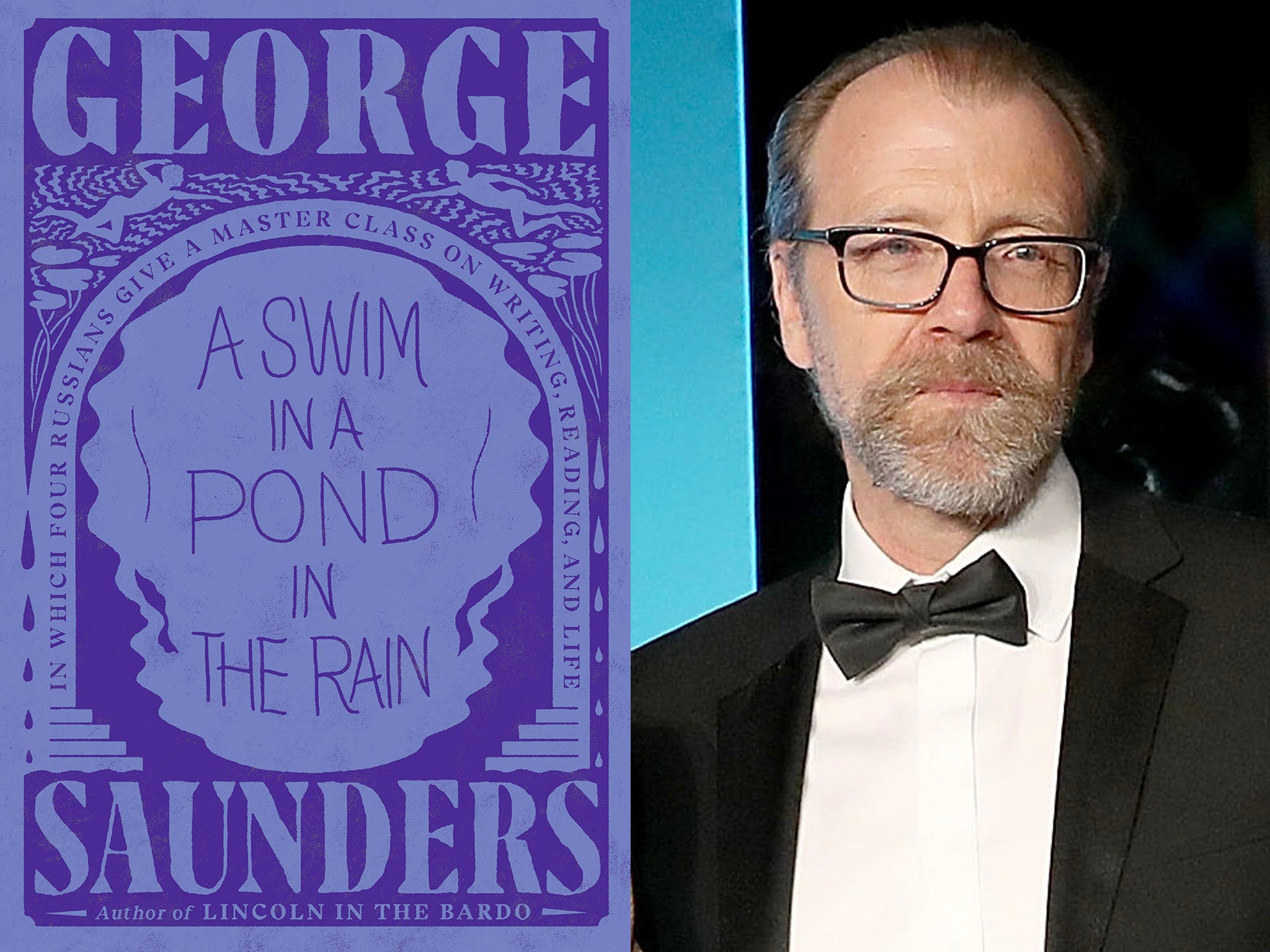
A Swim in the Pond in the Rain (In Which Four Dead Russians Give Us a Masterclass in Writing and Life) by George Saunders ★★★★★
George Saunders, author of the brilliant, inventive novel Lincoln in the Bardo, has spent 20 years as a professor teaching the Syracuse University masters creative writing course – and he offers his own literary masterclass in A Swim in the Pond in the Rain, an eye-opening, forensic look at seven great short stories – three by Anton Chekhov, two by Leo Tolstoy and single ones by Ivan Turgenev and Nikolai Gogol.
This is a detailed, erudite book, with all the precision analysis you would expect from Saunders, a former engineering student. But it is also joyful and playful, a book full of wisdom, one to drink in slowly. As Saunders says of Tolstoy’s “harrowing” story Master and Man: “It’s kind of fun to poke at it in an ornery spirit of technical exploration.”
As well as being a broader tribute to the pleasures of the short story – “a frank, intimate communication between two minds” – the book is full of intriguing asides, reflections, graphs, tables and even an image of the optical illusion, Rubin’s vase, that help illuminate the hidden tricks and emotional string-pulling of some of the world’s greatest writers.
My favourite chapters were the ones dealing with Chekhov’s 1897 story In the Cart, which Saunders scrutinises a page at a time. His slow dissection deepened my understanding of a masterpiece of storytelling about loneliness, reinforcing why Chekhov’s best work is full of eternal truths.
Saunders also reminds literary fans why re-reading can be such a rewarding experience. As he picks apart Ivan Ivanych’s long speech in Chekov’s sublime 1898 story Gooseberries, Saunders focuses on the moment that Ivanych says: “Behind the door of every contented, happy man there ought to be someone standing with a little hammer and continually reminding him with a knock that there are unhappy people, that however happy he may be, life will sooner or later show him its claws, and trouble will come to him.” Saunders says of this radical, startling speech that “I’m moved and convinced anew by it every time”.
Saunders is one of the most inventive storytellers of our age and A Swim in the Pond in the Rain offers an enriching reminder of the power of fiction – and the craft that goes into the very best stories.
A Swim in the Pond in the Rain (In Which Four Dead Russians Give Us a Masterclass in Writing and Life) by George Saunders is published by Bloomsbury on 12 January, £16.99
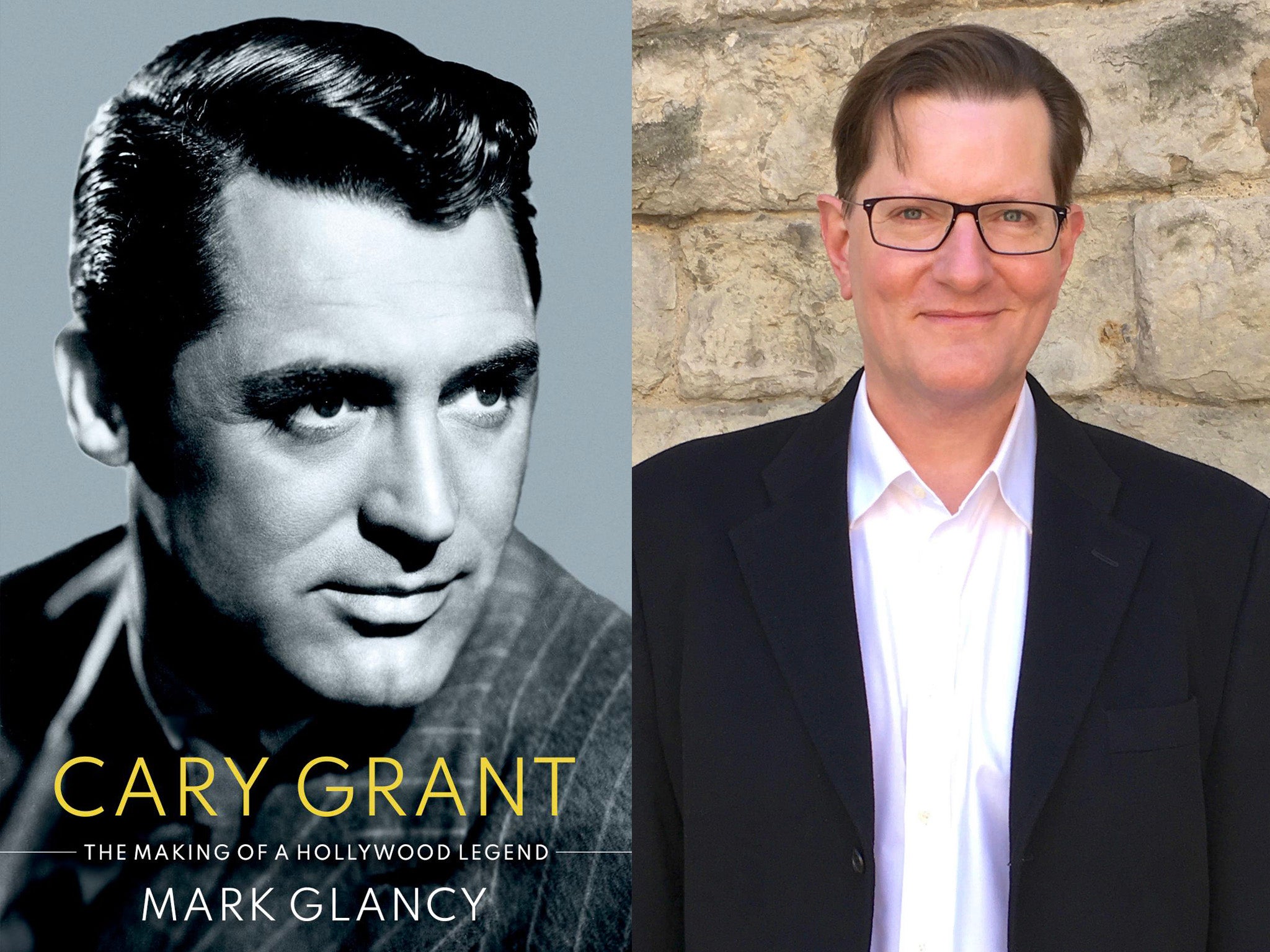
Cary Grant: The Making of a Hollywood Legend by Mark Glancy ★★★★☆
President Kennedy was such a fan of Cary Grant’s work that he would sometimes pick up the Oval Office phone, ring the debonair, Bristol-born film star and demand with a laugh, “Let’s hear your voice!”
Grant, famed for his American-English hybrid accent, had an action-packed professional life that earned him an honorary Oscar in 1970, for a 72-movie career that included gems such as North by Northwest, Philadelphia Story and Arsenic and Old Lace.
The personal life of the man born Archibald Alec Leach was equally dramatic and complex, full of enough childhood trauma to satisfy any biographer. In Grant’s case, it was the strange truth about his mother, a story he discovered only after he’d made it as a Hollywood star. As an 11-year-old, Grant was told that his mother had tragically died. In reality, Grant’s father had committed her to the Bristol Lunatic Asylum in 1915, before starting a new family.
After Grant’s father, by then a “broken down alcoholic”, made the shock confession, Grant was able to extract his mother from the grim institution in which she spent 22 years. However, the guilt and shame had severe emotional and mental repercussions for Grant, who spent years concealing the facts about his past from the American public.
Mark Glancy’s detailed biography carefully pieces together the actor’s early life, from the day-dreaming teenager’s expulsion at school to his life in music hall and his early struggles in New York – the low point was working as a stilt walker to advertise an amusement park – before his cinema stardom. In 1931, after failing a Fox screen test (embarrassingly, the film expert said he had no screen personality), Grant signed to Paramount, who told him that his real name was “too drab” for a movie star.
Glancy offers a comprehensive, deft analysis of his films – albeit with the curious decision to refer to the actor throughout the book simply as Cary – portraying a ruthless perfectionist with a natural ability to hustle. It is more surprising to learn about his vulnerable side, the times when he was riddled with anxiety, self-doubt and stage fright. There are also great tales about Mae West, Alfred Hitchcock and Ingrid Bergman.
Grant’s relationships with women were deeply problematic. He was “ridiculously vain” and each of his five weird marriages was full of melodrama. He also had numerous affairs, including with Sophia Loren, and seemed to live mainly to gratify himself. In the midst of dating former Miss Denmark Greta Thyssen, Grant told her, “I might love you today, but I can make no promises if I find someone as pretty as you tomorrow.” The biography does not shy away from his tawdry behaviour towards young actresses, but does not delve deeply into his temper tantrums and his appalling history of violence towards his wives.
It’s hard for any biographer to come up with definitive answers about everything going on in their subject’s head and Grant was an intelligent, elusive man who defied simple conclusions. He was a man who regularly took LSD trips (the sections on this are fascinating) and yet also a man who liked nothing better late in life than lying on his bed with a TV dinner and watching Dr Kildare.
Cary Grant: The Making of a Hollywood Legend is a first-rate study of a star of cinema’s golden age. The book also captures the sense of fun that made Grant such a popular actor, mourned throughout the world when he died from a massive stroke in 1986 at the age of 82. I loved the tale about the time the Encyclopaedia Britannica sent a telegram to Universal’s offices that read: “How old Cary Grant?” The actor personally replied with a telegram saying, “Old Cary Grant fine. How You?”
Cary Grant: The Making of a Hollywood by Mark Glancy is published by Oxford University Press on 14 January, £22.99
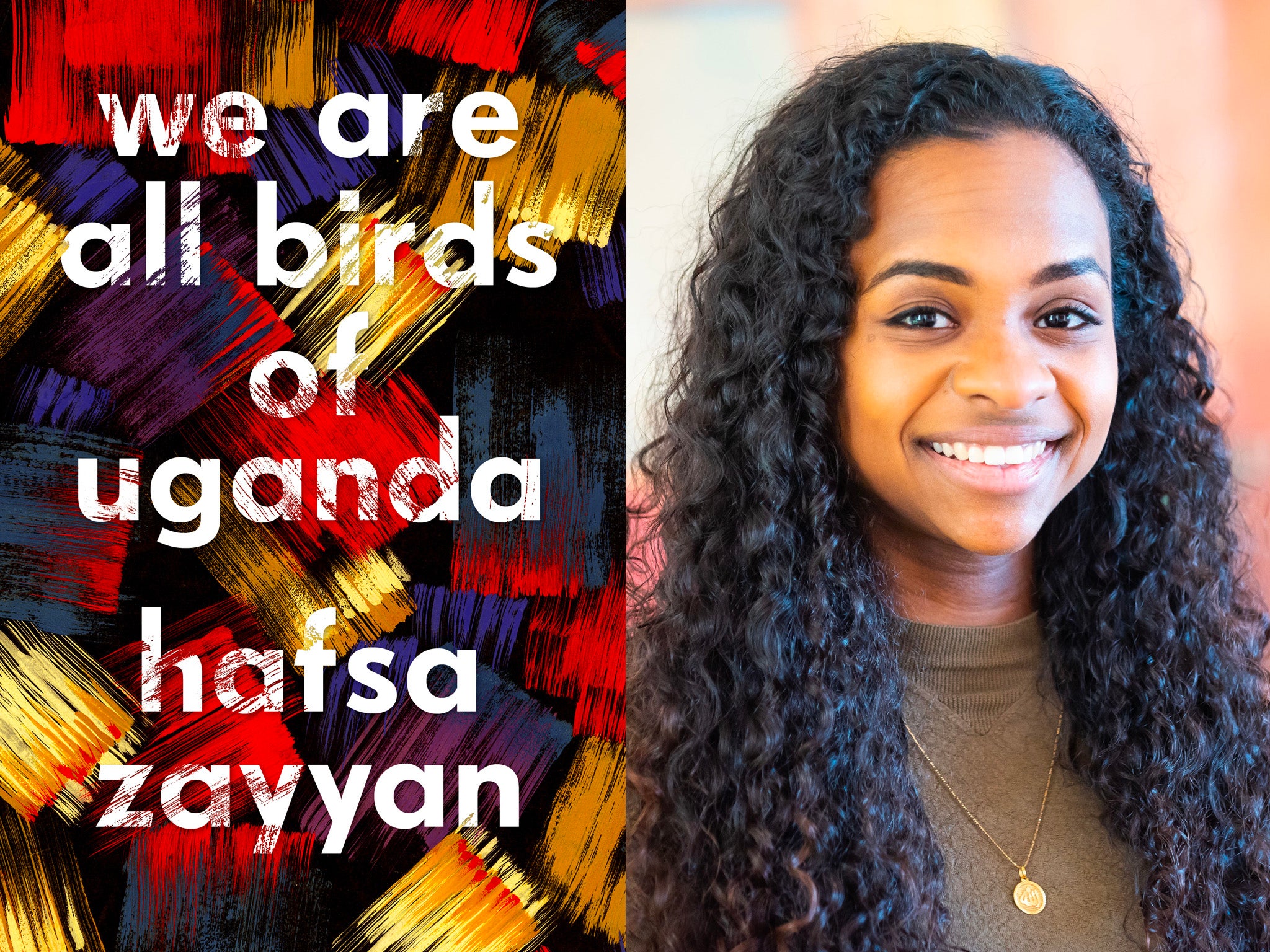
We Are All Birds of Uganda by Hafsa Zayyan ★★★★☆
Hafsa Zayyan’s debut novel We Are All Birds of Uganda was the co-winner of the first Merky Books New Writers’ Award. It tells the story of 26-year-old Sameer’s spur-of-the-moment trip to Uganda to explore his ancestral family’s past, and how his life is irrevocably changed by that trip and the people he meets.
When high-flying London-based lawyer Sameer is given a packet of letters from his grandfather Hasan to his first dead wife, the youngster begins to understand the history of his family through confessional correspondence in which “he could feel his grandfather’s sorrow dripping from the pages”. In these long letters, we hear the vivid story of Uganda’s modern history.
Sameer’s hunger for a complete change in his life is neatly established. The compensation of expensive gadgets and booty calls are scant reward for the misery of working in London’s legal world, one depicted by dispute resolution lawyer Zayyan as rife with bullying, racism, drug use and the demand for people to work insanely long hours.
Racism is a backdrop both to Uganda in the 1970s and Britain in the 21st-century. Hasan’s letters record the brutality directed towards the East African Asian community from that “madman” Idi Amin, and the stupid drunken brutes who enforce his rule like “a pack of angry wolves”. Violence is common to both countries. Sameer’s school friend Rahool is brutally attacked by a gang of racist thugs in Leicester and left with life-changing injuries.
Zayyan, who was born to a Nigerian father and Pakistani mother, uses the dual settings to explore common issues of identity, culture, racism, religion and family that bridge two very different eras and countries. We Are All Birds of Uganda is a sensitive tale – the scenes in Uganda are full of colour and emotion – and Sameer’s search for a sense of home is at the heart of a touching, multi-layered story.
We Are All Birds of Uganda by Hafsa Zayyan is published by Merky Books on 21 January, £14.99
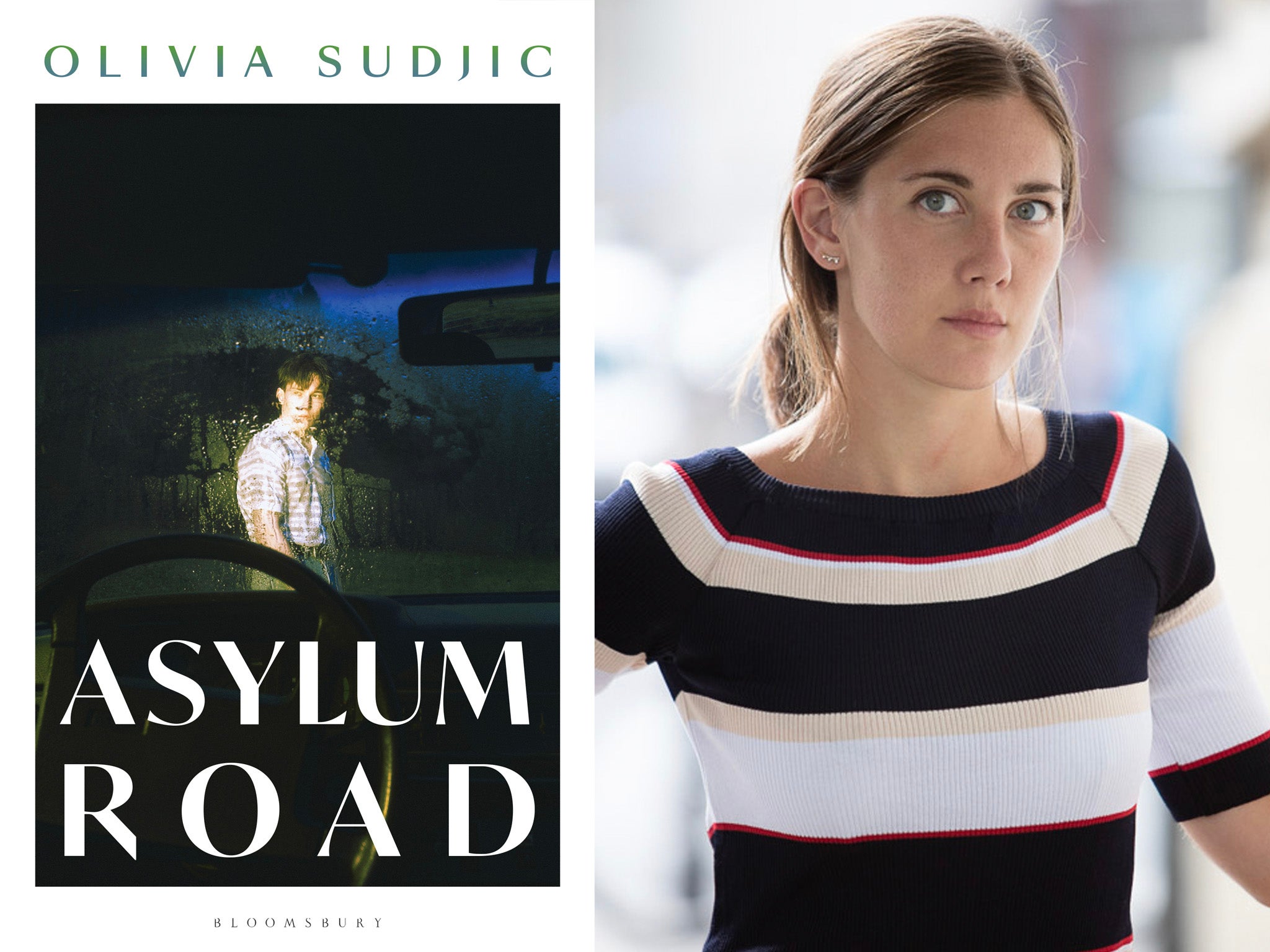
Asylum Road by Olivia Sudjic ★★★★☆
Anya, the 31-year-old protagonist of Olivia Sudjic’s second novel, Asylum Road, obsessively picks over her life, her scarred past, her family and, in particular, her relationship with Luke. This compulsive behaviour extends to her own body, as she constantly tweezes the hairs on her chin. It’s no coincidence that her actions are described in war metaphors (“an insurrectionary beard”, “renegade hairs”) because Anya is still traumatised by her escape from war-torn Sarajevo.
Sudjic subtly peels away at Anya’s past, revealing the story of her traumatic upbringing in small, telling details, such as the way dogs were shot “because it transpired dogs could anticipate a shelling”. War criminals such as Ratko Mladić are peripheral figures. We see modern-day Croatia, where souvenir shops sell pepper pots made from shrapnel, through the eyes of someone whose mental health has been severely affected by uncertainty and destruction.
Anya displays a palpable need for stability and reliability in her relationship with Luke. But will he offer more than just an empty promise of security? Their problematic relationship is at the heart of the story and Sudjic’s depiction is assured and deft, capturing the controlling behaviour and tension of a relationship mired in a “psychic war”.
The novel is set in London, coastal Provence, Cornwall, and Croatia. The two extended family set-pieces are full of awkwardness and sly humour. When the couple visit Luke’s parents in Cornwall (to celebrate their engagement), we see Luke’s domineering mother Anne through Anya’s sardonic lens. “I knew the only gay men Anne had ever knowingly met were two Canadians. Rather than say the word she now referred to all gay people as being like the Canadian men.”
The visit to Anya’s family, whom she has not seen for over six years, is no less fraught. Her mother has Alzheimer’s – she is placed in the central chair for dinner, “as if we sat around an open casket” – and Anya finds she wants to flee as soon as possible. When she returns to London, everything comes to a head in the final section of the novel.
Asylum Road is a fragmented, unsettling story, and an interesting meditation on modern relationships, families, guilt and what happens when escape starts to feel more like exile. Although I wasn’t convinced by the ending, the novel is at its best in small, haunting moments, especially the heartbreaking moment revealing Anya’s childhood memory about the time a family chicken (usually too stressed by the constant shelling to produce) finally lays an egg. She carries it to her mother like a precious gift, but the egg slips as she tries to turn the door handle. “The horror of that moment,” says Anya, “as if I’d dropped a whole planet.”
Asylum Road by Olivia Sudjic is published by Bloomsbury on 28 January, £14.99
Join our commenting forum
Join thought-provoking conversations, follow other Independent readers and see their replies
Comments


Bookmark popover
Removed from bookmarks